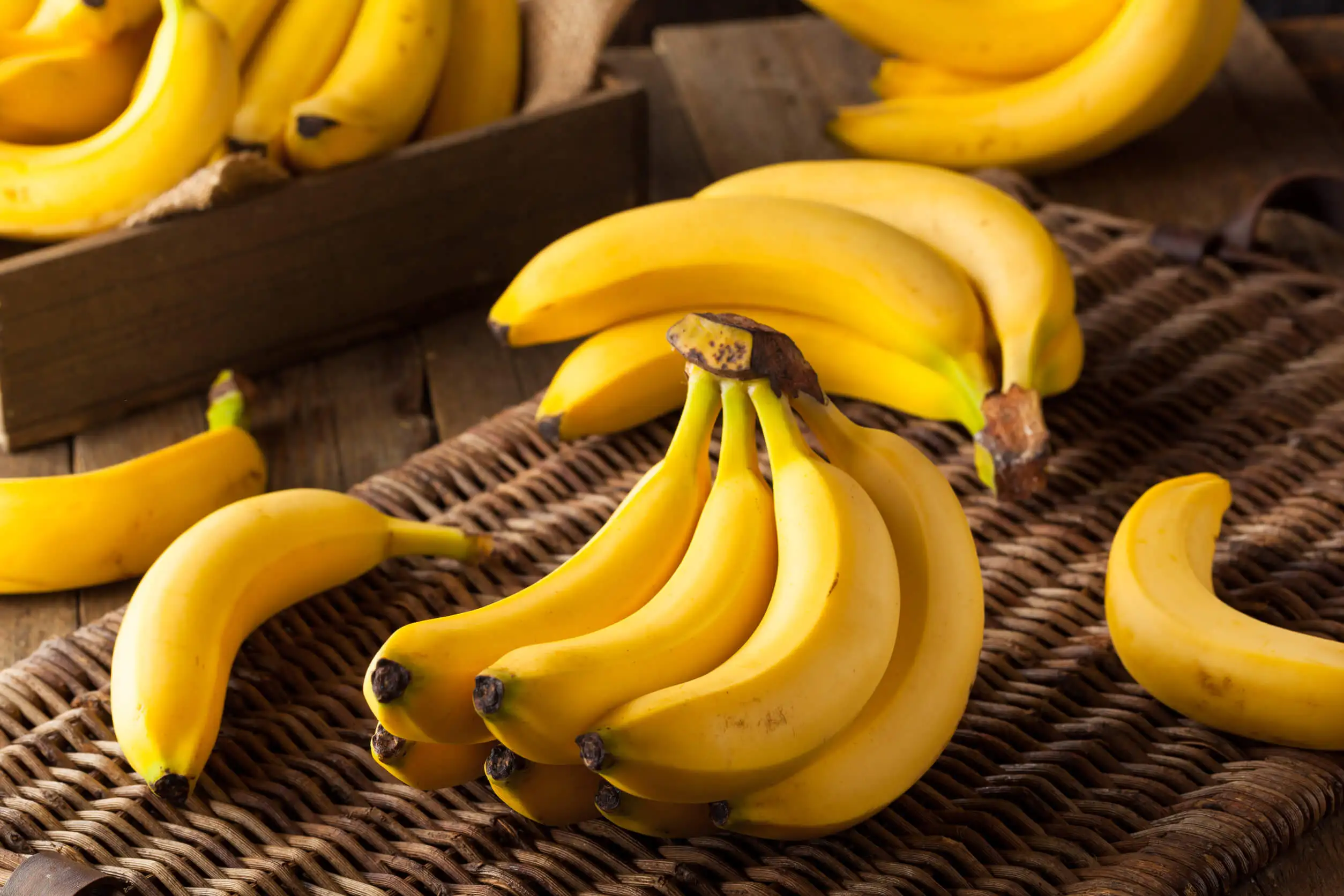Why Do I Feel Tired After Eating? Discover Some Tips to Overcome It


Written and verified by the nutritionist Maria Patricia Pinero Corredor
How many times have you been overcome by tiredness and lethargy after eating? Many of us feel sleepy after a meal, as if the process itself had been hard work. Although it’s still not very clear why some people feel so tired after eating, most of the evidence indicates that it’s due to the activation of our natural clocks.
Humans have stages of wakefulness and sleep, as well as hunger and satiety. Mealtime can accelerate or decelerate this process. Moreover, what we eat is more important than how much we eat.
In this article, we’ll be clarifying what really happens after eating and how our biological clocks work. The hunger-satiety cycle is governed by one of them.
If you’re one of those people who feel tired after eating, stay with us as we explain how to avoid this uncomfortable sensation. This will make your working day more efficient.
We think you may also enjoy reading this article: How to Feel Less Tired and Weak When You Wake Up
What is a biological clock?
The stages in which our body develops certain activities are governed by small-time devices that have been with us since birth. We call these biological clocks and they adjust to certain cyclical factors in the environment. They’re composed of specific molecules that interact with our cells.
Biological clocks are found in almost all tissues and organs. That’s why they’re called “peripheral” elements. They’re coordinated by a main clock located in the hypothalamus, at the level of the brain, which receives information through the senses.
These clocks produce the circadian rhythms and regulate their programming.
What is a circadian rhythm?
Our circadian rhythm manifests itself in physical, mental, and behavioral changes that follow a daily cycle and respond mainly to light and dark. For example, sleeping at night and being awake during the day.
There are natural factors that produce it, but the environment also influences it. Thus, the brain clock controls the production of a hormone that makes people sleepy, known as melatonin. When there’s less light, it’s produced more.
The circadian rhythm also controls feeding. The hypothalamus regulates hunger, appetite, and satiety. It uses peptides, such as cholecystokinin, blood sugar, and fat levels, and certain hormones to do so.
Sleep and eating binomial
Sleep and eating are inseparable binomial and are governed by a group of hormones. What we eat and when we eat influences the quality of our sleep.
Insufficient or poor-quality sleep can affect our eating behavior.
Reduced sleep increases the production of ghrelin, the hormone that increases appetite. In this condition, levels of the hormone leptin, which decreases appetite and increases sleep, also decrease. On the other hand, the orexin hormones involved in wakefulness decrease their values after eating.
Dietary habits affect the synchronization of numerous circadian rhythms, especially those related to digestive and metabolic functions. The time of day and the frequency with which food is consumed are key to maintaining good health.
A couple of experts explain the concept of the chronodiet, a fiend that studies the best times at which to eat certain foods to improve our health. On the other hand, the food and beverages we consume provide the necessary ingredients to form the different neurotransmitters involved in wakefulness and sleep.
Why do I feel tired after eating?
To explain the main causes of why you feel tired after eating, biological clocks must be considered. Let’s take a closer look.

When to eat
When you eat is important because the brain coordinates with the digestive organs. During the night, the body processes food very slowly and easily converts it into fat. In addition, leptin is also produced at night, which reduces hunger and promotes sleep.
In this sense, there are typically two times of sleepiness during the 24 hours of the day: at night and about 8 hours after waking up. In those countries where people eat after noon, this second period of tiredness coincides with nap times.
What you eat
Foods that are sources of carbohydrates or sugars have been linked to a feeling of tiredness. Scientists used to believe that while the sugars were being digested, almost all the blood went to the digestive tract, leaving the brain with little blood flow. Today, however, it’s known that this hypothesis is false, since the brain can’t be left without blood and oxygen.
Today, a group of specialists have found that tiredness and drowsiness after eating carbohydrates is related to a decrease in the levels of orexins. These hormones keep the body awake and alert.
On the contrary, eating foods rich in protein (meats, fish, legumes, nuts, eggs, and dairy products) increases the activity of the neurons that produce orexin . Therefore, the body will spend more time active and awake. In the case of fats, these slow down the digestive process, producing tiredness and sleepiness.
Foods with fiber and low glycemic index, such as whole grains, legumes and vegetables, promote rest, but in a natural way.
Bioactive components that promote rest and sleep
Some studies have concluded that the chemical composition of foods can define the best time of day to consume them. For example, foods that are a source of tryptophan promote sleepiness and tiredness after eating by producing serotonin and melatonin.
Serotonin regulates sleep and is synthesized through tryptophan, as it’s not able to cross the blood-brain barrier in the brain. Melatonin induces and maintains sleep. Hence, the best time of day to ingest foods that contain these substances is in the afternoon or evening.
According to Silbert and Smith, the main food sources of tryptophan are bananas, pineapple, avocado, meat, turkey, eggs, oily fish, and nuts. According to the Spanish Sleep Society, these foods combined with magnesium, calcium, zinc, and B complex vitamins, enhance drowsiness after eating. They are muscle relaxants and help tryptophan to produce sleep hormones.
Like this article? You may also like to read: Consequences of an Imbalanced Diet: Foods that Lead to Tiredness
The best tips to overcome tiredness after eating
You can practice several techniques to avoid the feeling of tiredness after eating and help you continue the day with a good performance. In this way, you can avoid the question of why you feel tired after eating.
1. Get restful sleep in duration and quality
Getting enough deep sleep during the night prevents the drowsiness and intense lethargy that often appears at midday after eating. The number of hours of good sleep during the night depends on age and our internal clock. However, social habits and work schedules can interfere with them.
If you don’t get enough sleep, your circadian rhythm gets out of control, and, as some glucose enters the blood, fatigue sets in. That’s why it’s important to follow the natural rhythm of the biological clock and get enough rest.
2. Take a short nap
The Spanish Sleep Society explains that it’s natural for the central biological clock to indicate that about 8 hours after a deep sleep there is an increase in sleepiness. In several cultures, this is solved with a short nap, which coincides with meal times.
It’s recommended that the nap is a short duration: between 20 and 30 minutes. This time is enough to boost alertness and improve cognitive performance without affecting nighttime sleep afterward.
3. Establish a routine for your dietary habits and schedules
It’s advisable to keep a healthy eating schedule. For example, eating several meals a day is preferable to focusing all the energy and nutrients in a smaller number of meals. Ideally, 5 to 6 meals a day would be ideal; this decreases portion sizes and facilitates better digestion.
4. Exercise regularly
The Pan American Health Organization states that regular physical activity has a number of benefits to improve performance and mental health. For example, it improves concentration, memory, and attention. In addition to work and school performance.
A good physical exercise routine also promotes digestion and regular intestinal transit. In addition, it helps us to improve our quality of sleep and fall asleep better.
5. Select foods well when eating
If you’re one of those who suffer easily from fatigue after eating, check the foods that are part of your diet. For example, those rich in tryptophan and slow-absorbing carbohydrates are better at dinner.
Meanwhile, those containing more phenylalanine and tyrosine, such as red meat, ham, and eggs, are precursors of catecholamines and dopamine, which promote wakefulness.

6. Balance your meals so you don’t feel tired after eating
All meals should include foods that provide nutrients from the different groups. However, sometimes we focus on carbohydrates and proteins, leaving aside the sources of minerals and vitamins.
That’s why it’s advisable to distribute our plate in a balanced way. Half of the plate should be for vegetables and fruits, including salads.
Meanwhile, a quarter of the plate should be left for lean proteins, such as white fish and skinless poultry. Starchy vegetables (roots and cereals) should only cover the other quarter of the plate.
7. Consume stimulating drinks in a prudent way
After meals, a tea, a small cup of coffee or chocolate will do you good to keep you awake. However, it’s important not to overdo it with caffeine consumption, as this can make it difficult to get a good night’s sleep.
8. Take advantage of exposure to bright light
A group of researchers found that exposure to bright light after a meal produces beneficial effects, similar to those of a short nap. It improves performance, cognitive flexibility, and has antidepressant capacity.
It’s advisable to place a bright light lamp on the desk or in the workplace and expose yourself to bright light after lunch.
How to perform better and not feel tired after eating
One of the functions of the circadian rhythm is to control the processes of sleep-wakefulness and hunger-satiety. It is innate to our body to feel sleepy after eating.
However, to strengthen cognitive and physical performance, we should eat a healthy and balanced diet, follow a good nighttime sleep routine, exercise regularly, modify our habits, and select foods that keep us active in the evening.
In case we feel very tired and sleepy, we can help our neurotransmitters to activate with a dose of caffeine or bright light. This will help us avoid wondering why we feel tired after eating.
All cited sources were thoroughly reviewed by our team to ensure their quality, reliability, currency, and validity. The bibliography of this article was considered reliable and of academic or scientific accuracy.
- Tassino, Bettina & Migliaro, Adriana & Estevan, Ignacio & Silva, Ana. (2018). El reloj biológico frente a los desafíos de la modernidad. 2. 113-126. 10.5027/reinnec.V2.I1.36. Disponible en: https://www.researchgate.net/publication/333148805_El_reloj_biologico_frente_a_los_desafios_de_la_modernidad/citation/download
- Nakamura Y, Yanagawa Y, Morrison SF, Nakamura K. Medullary Reticular Neurons Mediate Neuropeptide Y-Induced Metabolic Inhibition and Mastication. Cell Metab 2017;25(2):322-34. DOI: S1550-4131(16)30634-9. Disponible en: https://pubmed.ncbi.nlm.nih.gov/29869415/
- Munch M, Bromundt V. Light and chronobiology: implications for health and disease. Dialogues Clin Neurosci 2012;14(4):448-53. Disponible en: https://www.ncbi.nlm.nih.gov/pmc/articles/PMC3553574/
- Valencia A Mauricio H, Cassiani M Carlos A, Cardona O Juan C, Villalobos Talero Julio. El sistema orexinérgico/hipocretinérgico y su rol en los trastornos del sueño. Salud, Barranquilla [Internet]. diciembre de 2010 [citado el 10 de junio de 2022]; 26(2): 285-297. Disponible en: http://www.scielo.org.co/scielo.php?script=sci_arttext&pid=S0120-55522010000200011&lng=en.
- Covassin N, Singh P, Somers VK. Keeping Up with the Clock: Circadian Disruption and Obesity Risk. Hypertension 2016;68(5):1081-90. DOI: 10.1161/HYPERTENSIONAHA.116.06588.
- Silber BY, Schmitt JAJ. Effects of tryptophan loading on human cognition, mood, and sleep. Neurosci Biobehav Rev 2010; 34: 387-407. Disponible en: https://pubmed.ncbi.nlm.nih.gov/19715722/#:~:text=Similarly%2C%20Trp%20loading%20appears%20to,to%20its%20mild%20sedative%20effects.
- M.J. Jurado Luque. Sueño saludable: evidencias y guías de actuación. Documento oficial de la Sociedad Española de Sueño. Vol. 63, Supl. 2, Octubre 2016. ISSN 0210-0010. www.neurologia.com. Disponible en: https://ses.org.es/docs/rev-neurologia2016.pdf
- Organización Panamericana de la Salud. OMS. Ministerio de Salud. Uruguay. A moverse. Guía de actividad física. Disponible en: https://www.paho.org/uru/dmdocuments/WEB%20-%20Guia%20de%20actividad%20fisica2%20-%20MSP-compressed.pdf
- Peuhkuri K, Sihvola N, Korpela R. Diet promotes sleep duration and quality. Nutr Res 2012; 32: 309-19. Disponible en: https://pubmed.ncbi.nlm.nih.gov/22652369/#:~:text=Lastly%2C%20we%20summarize%20our%20findings,most%20helpful%20in%20promoting%20sleep.
- Garaulet M, Gómez-Abellán P, Alburquerque-Bejar JJ, Lee YC, Ordovás JM, Scheer FA. Timing of food intake predicts weight loss effectiveness. Int J Obes (Lond) 2013;37(4):604-11. DOI: 10.1038/ijo.2012.229. https://pubmed.ncbi.nlm.nih.gov/23357955/
- Hichem Slama, Gaétane Deliens, Rémy Schmitz, Philippe Peigneux, and Rachel Leproult . Afternoon Nap and Bright Light Exposure Improve Cognitive Flexibility Post Lunch. PLoS One. 2015; 10(5): e0125359. doi: 10.1371/journal.pone.0125359
This text is provided for informational purposes only and does not replace consultation with a professional. If in doubt, consult your specialist.








